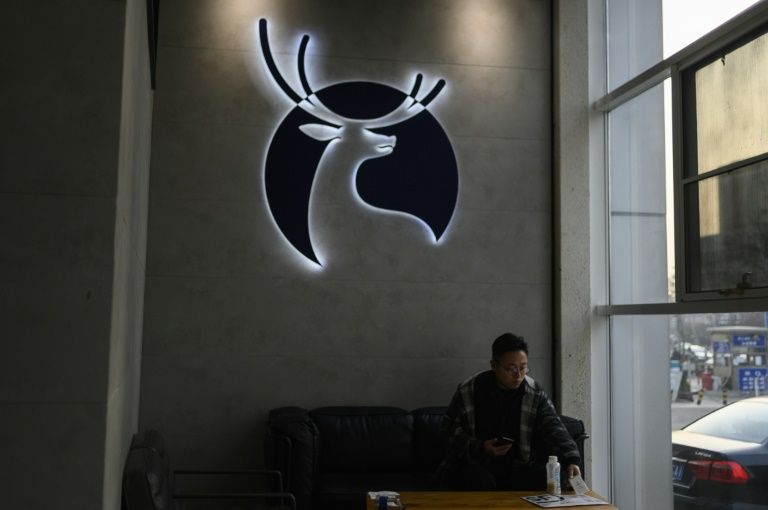Luckin Coffee sticks by chairman despite scandal over fake sales
Luckin launched in 2017 and planned to dethrone Starbucks in China via an aggressive growth strategy
. ©AFP FRED DUFOURBeijing (AFP) – Embattled coffee chain Luckin Coffee has decided against ousting its founder and chairman, despite an internal investigation concluding that last year’s revenue included millions of dollars in fake sales.
The massive financial scandal has already cost the company two top executives, caused shares to plummet more than 70 percent and put its billionaire founder Charles Zhengyao Lu in the line of fire — and will see it delisted from the Nasdaq in New York.
But the directors decided Lu would nevertheless remain as chairman of its board, the company said in a notice, a day after an internal probe found its 2019 net revenue was inflated by some 2.12 billion yuan ($311 million).
A proposal to oust Lu failed to get the necessary two-thirds majority vote on Thursday, Luckin said in a filing to the US Securities and Exchange Commission.
The company’s shares went into freefall after it revealed in April that a top officer may have faked billions of yuan worth of sales.
The chain has since fired chief executive Jenny Zhiya Qian and chief operating officer Liu Jian.
On Wednesday, Luckin said in a separate filing that a special committee investigation had found the fabrication of sales traced back as early as April last year.
Apart from the inflated revenue, Luckin’s 2019 costs and expenses were also found to be inflated by 1.34 billion yuan.
The committee’s recommendations — which led to Qian and Liu’s removals — brought about a proposal to oust Lu as well.
While it eventually failed to garner enough support to remove Lu, the board earlier announced its decision to fire another 12 employees involved in the fake transactions.
Luckin suspended trading on June 29 and will be delisted from the Nasdaq by the end of next week, having been asked to do so by the exchange.
The chain launched in 2017 and raised $561 million in its initial public offering less than two years later, with plans to dethrone Starbucks in China via an aggressive growth strategy, enticing customers with an app-based purchasing model that prioritised takeaway and delivery options, and generous mobile coupons.
By the end of 2019, the Xiamen-headquartered firm’s 4,500 outlets in mainland China had already surpassed Starbucks’ local footprint, and investors touted the company’s potential to go global. Most of its outlets remain open.
The scandal has dealt a blow to US-listed Chinese firms, who find themselves coming under increased scrutiny as tensions flare between the two superpowers.
Lu must still face a vote of confidence by shareholders on Sunday at an extraordinary general meeting, which also proposes axeing several more directors.
Disclaimer: Validity of the above story is for 7 Days from original date of publishing. Source: AFP.


